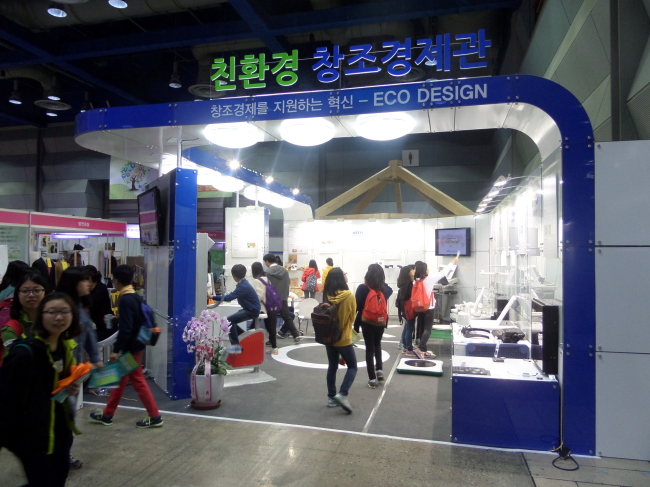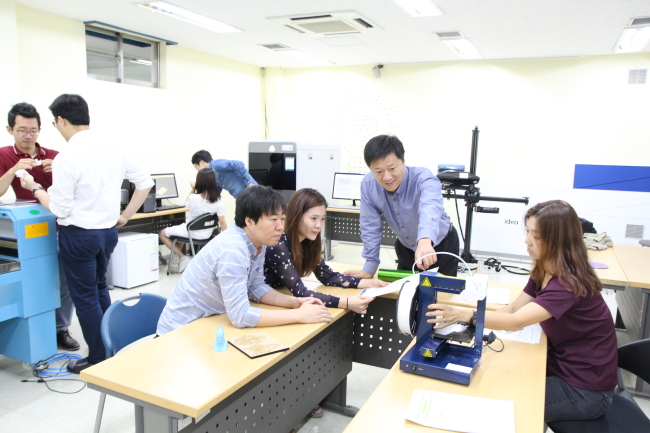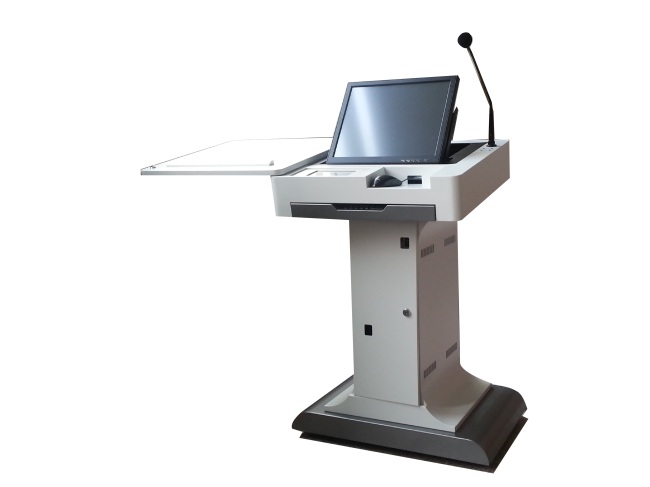The following is the first in a series of articles on the creative green economy, focused on generating the nation’s new growth engines, which has been initiated by the Park Geun-hye administration and the Ministry of Environment ― Ed.
South Korea is set to infuse fresh momentum into small and mid-sized enterprises by making it easier to enter new businesses based on green technology.
The move is expected to boost Korea’s efforts in Korea’s the economic and environmental spheres.
The policy is one of the key initiatives by the Park administration, mapping out plans for spurring the “creative economy” and encouraging the convergence of different efforts.
While there have been some creative joint projects between the information technology and culture sectors, it remains difficult to see similar collaborations between high-end tech firms and eco-friendly companies.
Under the initiative of President Park Geun-hye, the Ministry of Environment is pinning hopes on venture start-ups, which have been upgrading their technologies to find a niche market.
The Korea Environmental Industry & Technology Institute, as a public institute affiliated with the Ministry of Environment, has set the paradigm: “Green Economy plus Creative Economy equals Creative Green.”
South Korea is set to infuse fresh momentum into small and mid-sized enterprises by making it easier to enter new businesses based on green technology.
The move is expected to boost Korea’s efforts in Korea’s the economic and environmental spheres.
The policy is one of the key initiatives by the Park administration, mapping out plans for spurring the “creative economy” and encouraging the convergence of different efforts.
While there have been some creative joint projects between the information technology and culture sectors, it remains difficult to see similar collaborations between high-end tech firms and eco-friendly companies.
Under the initiative of President Park Geun-hye, the Ministry of Environment is pinning hopes on venture start-ups, which have been upgrading their technologies to find a niche market.
The Korea Environmental Industry & Technology Institute, as a public institute affiliated with the Ministry of Environment, has set the paradigm: “Green Economy plus Creative Economy equals Creative Green.”

One of KEITI’s missions is to support eco-design in industry, called the Eco-design Project.
The focus of the project is on innovation, rather than simple improvement in the day-to-day environmental performance of existing products, KEITI researchers stressed Thursday.
“Innovation refers to a differentiated technology and business model, which can transform the lifestyle of consumers in an ecofriendly direction,” said KEITI researcher and spokesman Seok Sung-woo.
Jung Young-do, a researcher at the sustainability strategy office of KEITI, said that the project has two distinctive characteristics, which differ from existing approaches that involve life cycle assessments.
“First, we set clear objectives for a sustainable society, and then collected a variety of ideas to realize those objectives from people in Korea,” Jung said. “Most existing eco-design methodologies employ forecasting approaches, whereas the current study employs ‘backcasting’ approaches.”
He said that “next, ideas are chosen that will be most effective in achieving the objectives, thereby supporting the development of products and services for market release.”
Seok and Jung shared the view that 3-D printers and simulation technologies, as well as open platforms such as YouTube and app stores, can be tools to help realize the project’s ideas.
The researchers said their aims include not only stimulating the production of environmental products and services in response to environmental regulations and eco-labelling, but also spurring innovation for more creative products and services.

Rather than specifying a target approach, they broadened their approach to include everything bar specific exceptions. KEITI has also set two clear objectives to stimulate innovative ideas and prioritize them.
The first objective was to resolve social issues in Korea through eco-friendly methods, such as excessive use of energy and water resources, damage from hazardous substances and the decline of local economies due to urban concentration. The second objective was to change lifestyle consumer habits that harm the environment to eco-friendly lifestyles.
KEITI picked a smart conference system as one eco-friendly model. The electronic lecture desk, showcased by Spina Systems Co., is a smart conference system consisting of an electronic table, a beam projector, a transmitter and receiver for wireless control, and a PC router.

Existing electronic tables consist of controllers, amplifiers, power distribution devices and PCs and are generally heavy and complex, requiring high power consumption.
The state-of-the-art electronic table, in which all devices are integrated with a single controller, is very slim and can be maintained easily, and it consumes one-third of the electricity used by existing products.
The wireless controller for the beam projector can reduce the burden of installing devices in conference rooms, while also making the electronic table easier to move around.
A router that can be shared by up to eight people can transmit multimedia data with only the use of a USB connection.
Officials at the Environment Ministry say that, from sewage management to waste recycling to water and air purification, Korean companies boast advanced technologies and practical know-how.
“But most of them are small in terms of capital and workforce and lack financial and marketing resources to fulfill their potential,” said an official.
One of the key tasks of KEITI is to support small and mid-sized enterprises that have outstanding technologies but lack the resources to commercialize them.
The institute was established in 2009 through a merger of two state-run agencies involved with environmental research, commercialization of green technologies, export support and eco-labeling.
Under a national goal to join the world’s top 10 green industry powerhouses by 2020, the ministry said it would sharply increase and diversify its support programs in collaboration with KEITI and other public agencies.
By Kim Yon-se (kys@heraldcorp.com)




![[Herald Interview] 'Amid aging population, Korea to invite more young professionals from overseas'](http://res.heraldm.com/phpwas/restmb_idxmake.php?idx=644&simg=/content/image/2024/04/24/20240424050844_0.jpg&u=20240424200058)












![[KH Explains] Korean shipbuilding stocks rally: Real growth or bubble?](http://res.heraldm.com/phpwas/restmb_idxmake.php?idx=652&simg=/content/image/2024/04/25/20240425050656_0.jpg&u=)

